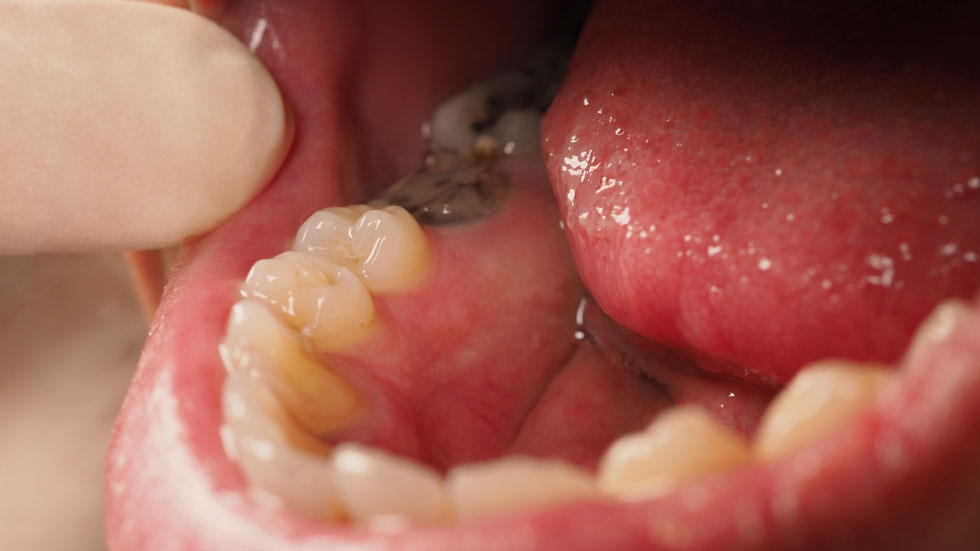We’ve all been taught to brush our teeth and floss regularly to prevent cavities and obtain pearly whites. But did you know that oral health goes much further than that? Good oral health is directly linked to maintaining good overall health and well-being. Since our mouth is the entry point to our respiratory and digestive systems and is teeming with both beneficial and harmful bacteria, it is crucial to adopt healthy behaviors in order to prevent illness and other complications. Not only must we take several actions to support a healthy mouth, but we also have to be mindful of what we do with our mouths outside of our morning and nightly routines. This blog will teach you about what both good and poor oral health look like, as well as how our overall well-being can be affected by the consequences of our habits.
What can be Defined as Poor Oral Health?
Failing to engage in a regular dental hygiene routine or engaging in improper habits can result in several symptoms and more serious conditions. Many risk factors that are common to oral illnesses and other health complications include illegitimate brushing and flossing, teeth grinding and clenching, alcohol usage, smoking, and poor diets heavy in sugar. The most common signs of having poor oral health can include toothaches, bad breath, teeth sensitivity, bleeding, loose and broken teeth, and red or swollen gums. These symptoms could be signs of more serious conditions including Gingivitis, Periodontal disease, cavities, tooth decay, and Bruxism.
Gingivitis is the early, mild, and reversible form of a gum infection that can often go unnoticed and advance into Periodontal disease, a serious gum infection that damages the soft tissue and bone supporting the tooth. A cavity can be defined as an area of the hard surface of a tooth that is damaged. These tooth decay patches develop into small openings or holes that may eventually cause severe pain, infection, or even tooth loss. Poor oral health goes outside of just disease, though. Bruxism, also known as grinding or clenching of teeth, is another major cause of several health complications. If prolonged, it may lead to damaged teeth or jaw, headaches, severe facial and jaw pain, as well as Temporomandibular joint (TMJ) disorders.
These conditions and diseases, while problematic on their own, can be attributed to more serious and sometimes life-threatening health complications.

How Poor Oral Health Can Affect Numerous Parts of your Life and can be Linked to More Problematic Health Conditions
The mouth can act as a window into the state of a person’s general health, and oral diseases and dysfunctions can significantly impact overall health. In addition to causing bad breath and yellowing smiles, poor oral health can also be a factor in several systemic health problems.
Cardiovascular Disease
There are some connections between poor oral health and cardiovascular diseases. Research suggests that gum inflammation and infections caused by oral bacteria can increase the risk of heart disease, clogged arteries, stroke, and heart failure. In fact, people with periodontal disease have twice the risk of suffering a fatal heart attack and are more likely to develop heart disease overall, according to the Canadian Academy of Periodontology. This condition is strongly associated with strokes, as the disease can cause plaque buildup in blood vessels (atherosclerosis). Gum infection bacteria can spread, potentially leading to Endocarditis-inflammation in heart chambers and valves, a life-threatening condition. While a direct causal link is not proven, preventive action through good oral habits is crucial.
Lung Infections
Individuals suffering from periodontal disease are also at a higher risk of breathing in germs that can cause lung infections such as pneumonia, due to the increased number of bacteria growing in their mouths. The same applies to those with cavities, as those too can harvest harmful bacteria that can be inhaled.
Pregnancy and Birth Complications
Besides its known effects on fertility and impotence, there are several potential complications associated with poor oral health in people who are pregnant. These include:
- Fetal growth restriction (FGR): FGR is a condition where a baby’s growth in the womb is below the normal weight. Some studies propose a potential link between periodontal disease and an increased risk of this. The proposed mechanism involves inflammatory factors associated with gum disease that may affect the developing fetus.
- Low birth weight: Poor oral health has been linked to low birth weight in some cases. Babies born with low birth weight may face health challenges both immediately and in the long term.
- Preterm birth: Some studies suggest a potential association between periodontal disease and preterm birth. The inflammatory response from gum disease might contribute to an increased risk of delivering a baby before the full term.
- Preeclampsia: Although research is ongoing, there is some evidence suggesting a potential connection between periodontal disease and an increased risk of developing preeclampsia, a serious condition characterized by high blood pressure during pregnancy.
- Gestational diabetes: Some studies suggest that oral infections and inflammation, common in conditions like periodontal disease, might contribute to insulin resistance and gestational diabetes. Research is still ongoing investigating this relationship.
It’s crucial to emphasize that individual health conditions can vary, and pregnancy outcomes are influenced by numerous factors. Seeking professional dental care during pregnancy can contribute to overall health and reduce the risk of oral health-related complications. However, any concerns or decisions regarding dental care during pregnancy should be discussed with healthcare providers, including obstetricians and dentists, to ensure a personalized and safe approach.
Vital Functions
Vital functions such as eating and speaking can be largely impacted by the consequences of defective oral health. For example, these functions can be hindered by missing teeth, toothaches, decay, gum inflammation, and more. Conditions like temporomandibular joint (TMJ) disorders can affect jaw functions and lead to pain and discomfort when eating or speaking. This condition, as mentioned earlier, can also lead to headaches or severe pain in or around the ear, neck, and face. Overall, these issues can make the movements of chewing and speaking extremely difficult and uncomfortable.
Social Functions
Finally, poor oral health can have various impacts on social functions, affecting both interpersonal relationships and broader social interactions. The consequences can contribute to stress, anxiety, and low self-esteem, all of which can affect an individual’s ability to engage socially. The psychological and social repercussions may affect one’s ability to form and maintain close connections, whether intimate, professional, or friendly. For instance, bad breath or discolored teeth can lead to social discomfort and may hinder the formation and continuation of close interactions, especially those that are romantic. Additionally, those with missing or decayed teeth may have altered speech and pronunciation which can impact the effectiveness of communication and also contribute to feelings of self-consciousness. In professional settings, the impact can extend to job interviews, networking events, and workplace interactions. Due to stereotypes and stigmas held by some societies, individuals with visible dental problems may be unfairly judged, potentially leading to social discrimination. Ultimately, the effects of poor oral health can affect an individual’s confidence but also can unfortunately influence the impression others make.
How to Practice Good Oral Hygiene to Have Better Overall Health

Practicing good oral hygiene is essential not only for maintaining a healthy mouth but also for promoting better overall health and avoiding the complications previously discussed in this blog. Here are key practices to incorporate into your daily routines:
- Brushing: Brush your teeth at least twice a day (sometimes more if you wear braces or Invisalign) with a soft-bristled brush and fluoride toothpaste, preferably in the morning and before bedtime. We recommend using gentle, circular motions, and being thorough, covering all surfaces of your teeth.
- Flossing: Floss at least once a day to remove plaque and food particles from between your teeth and along the gumline. Individuals with braces or Invisalign may be required to floss more frequently. Gently curve the floss around each tooth and slide it up and down to remove debris.
- Mouthwash: Consider using an antibacterial or fluoride mouthwash to help reduce harmful bacteria and strengthen teeth. Follow the directions on the mouthwash bottle and avoid using it as a substitute for brushing and flossing.
- Tongue Scraping: Proper tongue cleaning is crucial as the tongue’s surface can harbor lots of bacteria, leading to bad breath and impacting taste. The accumulation of germs on the tongue can spread to other parts of the mouth, causing a yellow, white, or even a hairy appearance. Make it a habit to incorporate tongue cleaning into your routine using a dedicated tongue cleaner or your regular toothbrush when brushing your teeth.
- Regular Dental Check-ups: Visit your dentist for regular check-ups and cleanings. Typically, it is recommended to do so every six months, but frequency may vary based on your needs. Professional cleanings help remove plaque and tartar that brushing and flossing alone may not address.
- Correct the Alignment of Your Teeth and Bite: Consult with a board-certified orthodontist like Dr. Daia to evaluate your smile and bite and achieve a healthy smile and bite. If you already have been through orthodontic treatment, make sure you continue to wear your retainers as your orthodontist recommended.
- Purge All Bad Habits: On top of the list is smoking alongside the use of harmful substances like Alcohol and Tobacco. Tobacco use is linked to various overall health problems, including gum disease and oral cancers. Excessive alcohol intake has been linked to several oral health issues.
- Protect Your Teeth: Wear a mouthguard during activities that pose a risk of injury to your teeth, such as contact sports. Refrain from using your teeth to open packages or perform tasks that can lead to damage.
- Manage Stress: Be aware of teeth grinding or clenching (Bruxism) and manage stress through relaxation techniques if necessary. Consider a night guard if teeth grinding is an issue.
- Stay Informed: Educate yourself about oral health practices and updates. Follow your dentist’s and orthodontist’s recommendations for specific oral health concerns.
- Healthy Diet: Reduce the consumption of sugary and acidic foods and beverages, as they contribute to tooth decay. Eat a balanced diet rich in fruits, vegetables, whole grains, and lean proteins to support overall health.
Remember that oral health is interconnected with overall health, and maintaining good oral hygiene contributes to your well-being. Consistency in these practices, along with regular dental check-ups, will help you achieve and maintain optimal oral health for better overall health!
Contact us today for a free consultation with Dr.Daia!
References
Yap, Adrian. “Oral Health Equals Total Health: A brief review.” Journal of Dentistry Indonesia, vol. 24, no. 2, 2017, https://scholarhub.ui.ac.id/cgi/viewcontent.cgi?article=1056&context=jdi.
Reardin, Renee. “7 Ways Your Oral Health Affects Your Overall Health.” Best Health, Best Health, 8 Apr. 2013, https://www.besthealthmag.ca/list/7-ways-your-oral-health-affects-your-overall-health/.
Staff, Mayo Clinic. “Oral Health: A Window to Your Overall Health.” Mayo Clinic, Mayo Foundation for Medical Education and Research, 28 Oct. 2021, https://www.mayoclinic.org/healthy-lifestyle/adult-health/in-depth/dental/art-20047475.
“How Your Oral Health Affects Your Overall Health.” Cleveland Clinic, Cleveland Clinic, 27 Nov. 2023, https://health.clevelandclinic.org/oral-health-body-connection.




